The PhD Program in Accounting is a research-intensive four-year program that provides excellent preparation for a career in academics with an emphasis on research, teaching, and service.
The Culverhouse School of Accountancy’s faculty supports students interested in archival and behavioral research in auditing, financial accounting, managerial accounting, accounting information systems, and tax.
Our PhD program fosters a collaborative and supportive community while exposing students to a wide range of research topics and methodologies. Our highly motivated students work closely with faculty at every stage of the research process – from idea generation to publication – during and after the PhD program. Experienced students also play an active role in mentoring and supporting their peers, creating an environment of shared growth and academic excellence.
Manderson’s PhD Program in Accounting is housed in one of the oldest and most respected accounting schools in the United States. Our faculty frequently publish in leading academic journals such as The Accounting Review; Accounting, Organizations, and Society; Contemporary Accounting Research; Journal of Accounting Research; Review of Accounting Studies; and Journal of Accounting and Economics, among others.


The PhD program in accounting is a four-year program that begins with two years of rigorous coursework, including accounting seminars and foundational classes in statistics and economics. Students may also take electives in other areas (e.g., psychology, economics, or finance) based on their research interests.
The program includes two key research milestones before progressing to the dissertation phase:
Students must successfully present and defend both papers to advance to the dissertation phase.
The program culminates in a dissertation, where students develop and defend original research that demonstrates their ability to apply advanced methodology, engage with relevant literature, and contribute independent insights to the field.
Admission decisions are made by the PhD program committee based on a holistic review of the following:
For information on Test of English as a Foreign Language (TOEFL) and International English Language Testing System (IELTS) scores, visit the graduate school website.
Deadlines may vary, but early application is strongly encouraged for fellowship and scholarship consideration. The PhD committee begins reviewing applications on September 1 of the year prior to admission. Admissions occur on a rolling basis until the cohort is full.
Below is an approximate timeline of UA Graduate School application dates:
First-year students arrive four weeks prior to the start of fall semester to take Advanced Mathematical Economics (EC 600).
Students take five accounting research seminars during their first two years:
Additional coursework is tailored to each student’s research focus and may include classes in economics, finance, management, psychology, or related fields.
Students typically begin dissertation work in their third year. The dissertation is the final demonstration of a student’s research ability, requiring independent thinking, mastery of relevant literature, and methodological expertise. Students must identify an original research question, design and execute a study, and successfully defend their findings in a final oral examination.
 Chad Stefaniak, CPA, Ph.D. ’09
Chad Stefaniak, CPA, Ph.D. ’09
Cramer Research Fellow, Associate Professor of Accounting, Darla Moore School of Business
“…Alabama will help you achieve whatever heights you desire to achieve and are willing to work towards. I am confident that with hard work you could go to any institution after graduating from the Alabama Ph.D. program.”
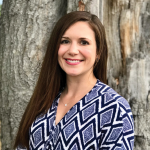 Amanda Beck, CPA, Ph.D. ’16
Amanda Beck, CPA, Ph.D. ’16
Visiting Research Associate, Lecturer, McDonough School of Business
“…I am confident that the Alabama Ph.D. program prepared me for a successful academic career.”
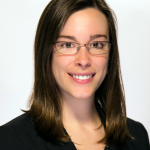 Emily Blum
Emily Blum
Undergraduate School and Degree: University of Massachusettes, Amherst, BBA in Accounting
Previous Working Experience: Audit Senior Associate, Grant Thornton
Research Focus: Auditor Judgement and Decision Making
Current University: Texas A&M University
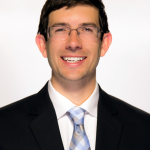 James Lawson
James Lawson
Undergraduate School and Degree: Wingate University, Bachelor of Arts in English
Graduate School and Degree Title: Wake Forest University, Master of Science in Accountancy
Previous Work Experience: Tax Associate, DHG
Research Focus: Policy and Standard Setting
Current University: Bucknell University
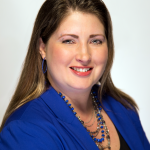 Julie Mercado
Julie Mercado
Undergraduate School and Degree: Oral Roberts University, BS in Marketing
Graduate School and Degree Title: Northeastern State University, MS in Accounting & Financial Analysis
Previous Work Experience: Instructor of Accounting, Northeastern State University
Research Focus: Governance, Ethics, and Donor Decision-Making in Nonprofit Organizations
Current University: Boise State University
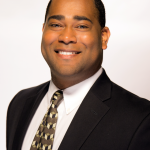 Ranier Robinson
Ranier Robinson
Undergraduate School and Degree: Arizona State University, BS in Accounting
Graduate School and Degree Title: Arizona State University, Masters of Accounting and Information Systems
Previous Work Experience: Director of Accounting, Greater Phoenix Enterprises
Research Focus: Financial Reporting, Earnings Management, Manager Compensation
Current University: Providence College
 Daniel Street
Daniel Street
Undergraduate School and Degree:
Kennesaw State University, BBA in Accounting
Graduate School and Degree Title: Kennesaw State University, MAcc
Previous Work Experience:
Senior Business Value Analyst, Manheim Auto Auctions
Research Focus: Institutional Investors, Corporate Governance,
Investor Myopia, and Real Earnings Payments
Current University: Bucknell University
General questions about the application process?
This website uses cookies to collect information to improve your browsing experience. Please review our Privacy Statement for more information.